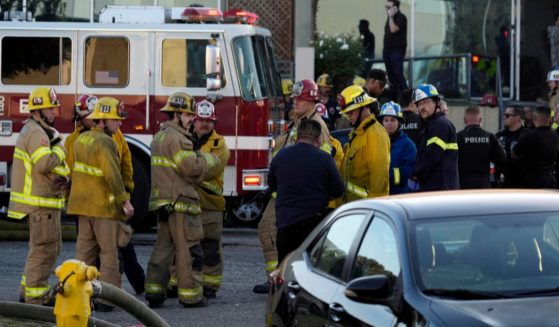Federal Appeals Court Allows California's Ban on Church Services To Continue
Despite a ringing dissent from a judge appointed by President Donald Trump, a federal appeals court has thrown out a lawsuit filed by a church that fought back against California Gov. Gavin Newsom’s lockdown order as it applies to churches.
The panel of the 9th U.S. Circuit Court of Appeals issued its ruling Friday in a suit brought by the South Bay United Pentecostal Church in Chula Vista, California, earlier this month.
The 2-1 decision came about when Judges Jacqueline Nguyen, appointed by former President Barack Obama, and Barry Silverman, appointed by former President Bill Clinton, formed a majority against Judge Daniel Collins, a Trump appointee, according to CNN.
Newsom’s multi-phase plan for reopening the state puts church services in Phase 3, while allowing secular activities to increase throughout Phase 2.
The majority said churches are not unduly harmed by the plan.
“Where state action does not ‘infringe upon or restrict practices because of their religious motivation’ and does not ‘in a selective manner impose burdens only on conduct motivated by religious belief,’ it does not violate the First Amendment,” the court ruling stated.
“We’re dealing here with a highly contagious and often fatal disease for which there presently is no known cure. In the words of Justice Robert Jackson, if a ‘[c]ourt does not temper its doctrinaire logic with a little practical wisdom, it will convert the constitutional Bill of Rights into a suicide pact,'” the ruling stated.
In his dissent, Collins said Newsom’s order was, in fact, discriminatory against churches.
“In framing its restrictions in response to the pandemic, California did not purport simply to proscribe specific forms of underlying physical conduct that it identified as dangerous, such as failing to maintain social distancing or having an excessive number of persons within an enclosed space. Instead, Executive Order N-33-20 presumptively prohibited California residents from leaving their homes for any reason, except to the extent that an exception to that order granted back the freedom to conduct particular activities or to travel back and forth to such activities,” Collins wrote.
“In announcing its Reopening Plan, the State has adopted a phased approach that will progressively add more and more exceptions to the baseline stay-at-home prohibition by designating additional specific categories of activities that, in the State’s judgment, do not present an undue risk to public health,” he wrote.
Collins noted that Phase 2 of the plan allows child care, hospitality, offices and other businesses to open.
“By explicitly and categorically assigning all in-person ‘religious services’ to a future Phase 3 — without any express regard to the number of attendees, the size of the space, or the safety protocols followed in such services — the State’s Reopening Plan undeniably ‘discriminate[s] on its face’ against ‘religious conduct,'” he wrote.
Collins wrote that the California plan fails the test of what is known as general applicability, in which all people or groups are treated equally under the law.
“Under California’s approach — in which an individual can leave the home only for the enumerated purposes specified by the State — these categories of authorized activities provide the operative rules that govern one’s conduct. While the resulting highly reticulated patchwork of designated activities and accompanying guidelines may make sense from a public health standpoint, there is no denying that this amalgam of rules is the very antithesis of a ‘generally applicable’ prohibition,” he wrote.
“The State is continually making judgments, at the margins, to decide what additional activities its residents may and may not engage in, and thus far, ‘religious services’ have not made the cut. I am at a loss to understand how the State’s current maze of regulations can be deemed ‘generally applicable,'” Collins wrote.
Collins said the state could have banned activities that could spread the coronavirus without banning religious gatherings.
“By regulating the specific underlying risk-creating behaviors, rather than banning the particular religious setting within which they occur, the State could achieve its ends in a manner that is the ‘least restrictive way of dealing with the problem at hand,'” he wrote.
“The State’s only response on the narrow-tailoring point is to insist that there is too much risk that congregants will not follow these rules,” Collins wrote, later adding, “the State’s position on this score illogically assumes that the very same people who cannot be trusted to follow the rules at their place of worship can be trusted to do so at their workplace.”
The bottom line for Collins was that in trying to do right, California got it wrong.
“I do not doubt the importance of the public health objectives that the State puts forth, but the State can accomplish those objectives without resorting to its current inflexible and overbroad ban on religious services. The balance of equities, and the public interest, strongly favor requiring the State to honor its constitutional duty to accommodate a critical element of the free exercise of religion —public worship,” he wrote.
According to ABC News, the church filed an emergency petition Saturday asking the U.S. Supreme Court to review the 9th Circuit panel’s ruling.
Truth and Accuracy
We are committed to truth and accuracy in all of our journalism. Read our editorial standards.
Advertise with The Western Journal and reach millions of highly engaged readers, while supporting our work. Advertise Today.












